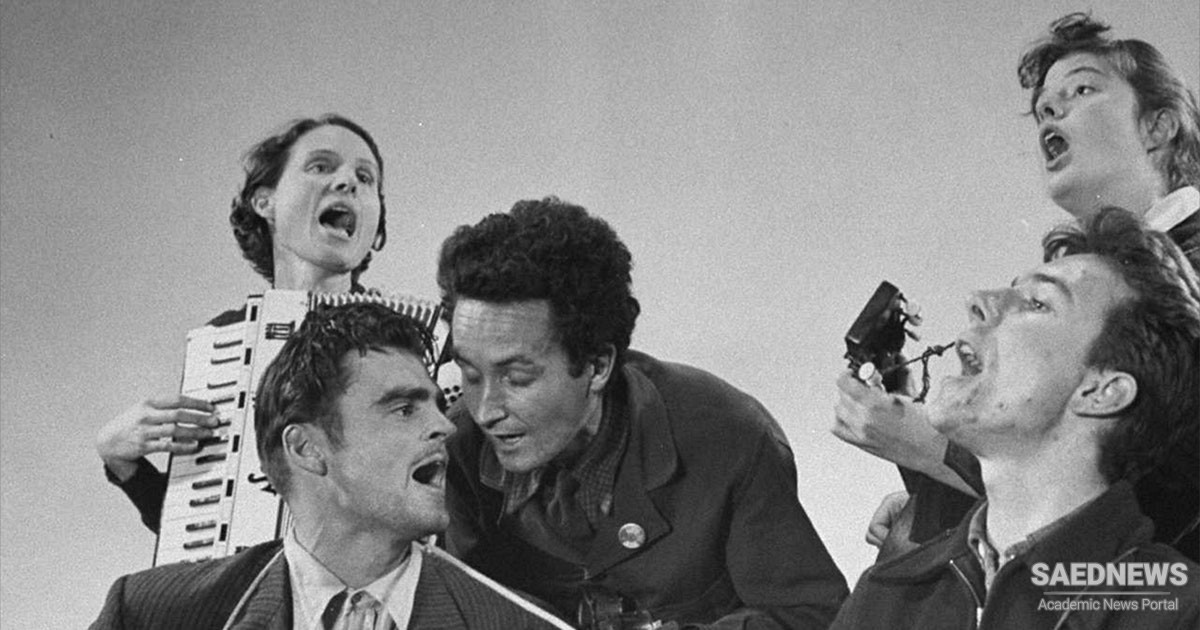Formed by Pete Seeger, Lee Hays, and Millard Lampell in early 1941, they first recorded an album of controversial peace songs, Songs for John Doe, early in the year, closely followed by Talking Union, full of catchy labor songs that would long resonate in folk circles. “Folklore might be entertaining, it described the roots and aspirations of the masses,” Richard Reuss has explained, “yet for most radicals it bore little relation to the realities of daily living in the urban and progressive milieus.”
The Almanac Singers, however, “attempted to implement a proletarian culture based on American traditions.” While they lasted only two years, they laid the foundations for a singing progressive movement that would grow in the future, particularly in the 1960s. Other catchall labor-oriented groups recorded during World War II, including the Priority Ramblers and the Union Boys(Burl Ives, Josh White, Pete Seeger, Tom Glazer, Brownie McGhee, and Sonny Terry). Woody Guthrie also recorded labor songs during the war, further developing a body of music that would express a labor consciousness and progressive orientation.
Reuss has labeled these performers the “Lomax singers,” because Alan Lomax promoted and shaped their musical styles and repertoires: “In sum, while individual attitudes and outlooks varied within the Lomax tradition, folk music was regarded as considerably more than entertainment with a ‘progressive’ flavor or as a new agit-prop strategy.” Rather, “it was the true ‘people’s’ music of the United States, the rightful heritage of American workers.” Lomax was heavily responsible for shaping the careers of Woody Guthrie, Lead Belly, Burl Ives, Josh White, and Pete Seeger, among others, the most significant and influential performers appearing after the war.


 The Reng
The Reng














































